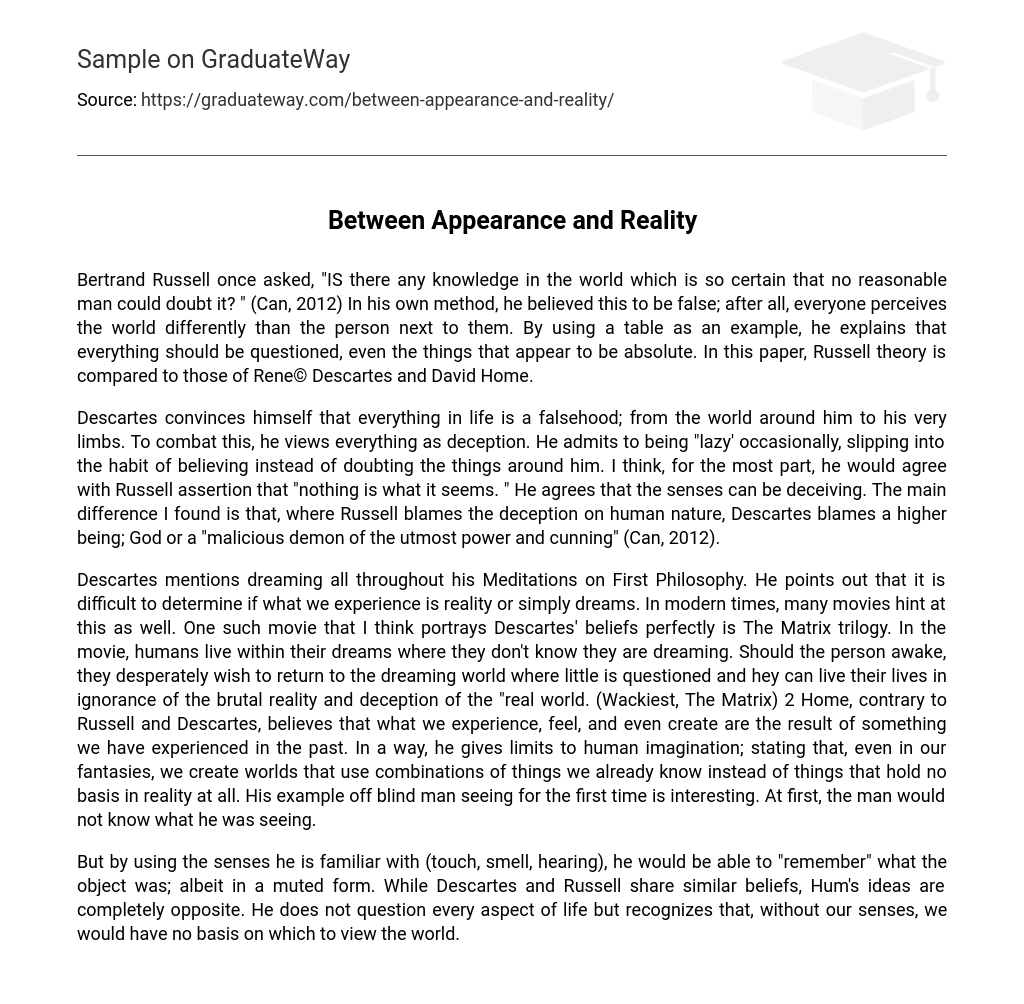Bertrand Russell once asked, “IS there any knowledge in the world which is so certain that no reasonable man could doubt it? ” (Can, 2012) In his own method, he believed this to be false; after all, everyone perceives the world differently than the person next to them. By using a table as an example, he explains that everything should be questioned, even the things that appear to be absolute. In this paper, Russell theory is compared to those of Rene© Descartes and David Home.
Descartes convinces himself that everything in life is a falsehood; from the world around him to his very limbs. To combat this, he views everything as deception. He admits to being “lazy’ occasionally, slipping into the habit of believing instead of doubting the things around him. I think, for the most part, he would agree with Russell assertion that “nothing is what it seems. ” He agrees that the senses can be deceiving. The main difference I found is that, where Russell blames the deception on human nature, Descartes blames a higher being; God or a “malicious demon of the utmost power and cunning” (Can, 2012).
Descartes mentions dreaming all throughout his Meditations on First Philosophy. He points out that it is difficult to determine if what we experience is reality or simply dreams. In modern times, many movies hint at this as well. One such movie that I think portrays Descartes’ beliefs perfectly is The Matrix trilogy. In the movie, humans live within their dreams where they don’t know they are dreaming. Should the person awake, they desperately wish to return to the dreaming world where little is questioned and hey can live their lives in ignorance of the brutal reality and deception of the “real world. (Wackiest, The Matrix) 2 Home, contrary to Russell and Descartes, believes that what we experience, feel, and even create are the result of something we have experienced in the past. In a way, he gives limits to human imagination; stating that, even in our fantasies, we create worlds that use combinations of things we already know instead of things that hold no basis in reality at all. His example off blind man seeing for the first time is interesting. At first, the man would not know what he was seeing.
But by using the senses he is familiar with (touch, smell, hearing), he would be able to “remember” what the object was; albeit in a muted form. While Descartes and Russell share similar beliefs, Hum’s ideas are completely opposite. He does not question every aspect of life but recognizes that, without our senses, we would have no basis on which to view the world.





